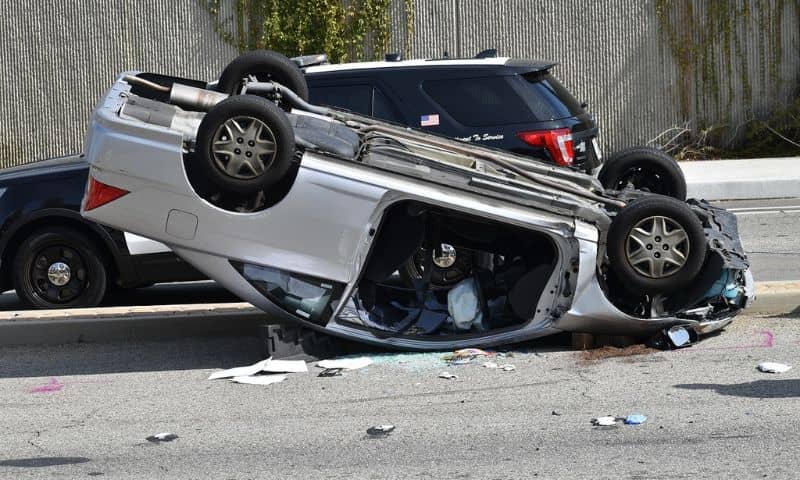When Car Accidents Lead to Post-Traumatic Stress Disorder (PTSD)

Car accidents get called “accidents” for a reason – they’re violent, unexpected events that can happen in a split second. But just because the physical injuries heal doesn’t mean the psychological trauma vanishes that quickly too. For many crash victims, the real battle is overcoming the crippling anxiety, nightmares, and persistent mental torture from reliving that terrifying incident over and over.
We’re talking about post-traumatic stress disorder (PTSD) – a very real and debilitating condition that can turn your entire life upside down after a serious wreck. Whether it was a head-on collision, rollover, or any other scary scenario, that level of extreme trauma can “re-wire” the brain to become stuck in a continuous loop of fight-or-flight responses.
Signs You May Have PTSD After a Car Accident
Post-traumatic stress disorder is a mental health condition that can develop after a person experiences or witnesses a traumatic event, such as a serious car accident.
Doctors diagnose PTSD through a range of distressing symptoms that significantly impact a person’s daily life and overall well-being.
Common symptoms of PTSD following a car accident include:
- Flashbacks and Nightmares: Reliving the accident in vivid detail, either while awake or during sleep, causing intense emotional distress and physical reactions.
- Avoidance Behaviors: Going to great lengths to avoid reminders of the accident, such as refraining from driving or even riding in a car, or you may avoid discussing the event with others.
- Hyperarousal and Anxiety: Feeling constantly on edge, easily startled, and having difficulty concentrating or sleeping.
- Emotional Numbness: You may feel detached from your emotions or struggle to connect with others as if you are going through life without truly experiencing it.
Several factors can increase the risk of developing PTSD after an accident, including the severity of the crash, the presence of pre-existing mental health conditions, and a lack of social support in the aftermath of the accident.
Coping Strategies for Emotional Trauma
In addition to seeking professional help, there are several coping strategies you can perform daily to help manage PTSD trauma after a car accident.
One of the most important steps is to acknowledge and validate your emotions. Know that experiencing a wide range of feelings after a traumatic event, including fear, anger, sadness, and guilt, is perfectly normal.
Allow yourself to feel these emotions without judgment, and remember that the healing process takes time. Relaxation techniques are also powerful tools for managing PTSD symptoms.
Some effective techniques include:
- Deep Breathing Exercises: Focus on taking slow, deep breaths from your diaphragm, helping to calm your body’s stress response.
- Progressive Muscle Relaxation: Systematically tensing and relaxing different muscle groups in your body, promoting a sense of physical and emotional relaxation.
- Mindfulness Meditation: Practice being present in the moment, observing your thoughts and feelings without judgment, and cultivating inner peace and clarity.
Engaging in any activity that promotes positive emotions helps one cope with PTSD. This approach may include pursuing hobbies, spending time in nature, or connecting with loved ones.
By focusing on experiences that bring you joy and fulfillment, you can begin to counterbalance the negative impact of the trauma and rediscover a sense of purpose and meaning in your life.
Legal Considerations and Seeking Compensation
Car accident victims in New York should understand their rights and the legal options available after a crash.
Consulting with a personal injury attorney who handles car accident cases can help you take on the complex process of seeking compensation for your valid PTSD injuries.
New York law entitles car accident victims to compensation for:
- Medical expenses related to the accident and PTSD recovery.
- Lost wages due to time away from work.
- Pain and suffering, including PTSD and emotional distress.
- Property damage to your vehicle or other personal items.
To build a strong case, your injury lawyer will work with you to gather evidence and documentation, such as police reports, medical records, witness statements, and expert testimony.
Your legal counsel will also handle communications with insurance companies and negotiate on your behalf to ensure that you receive fair compensation for your PTSD harm and losses.
Working with an experienced car accident lawyer lets you focus on your recovery, knowing that your legal rights and interests are always protected.
Secure Compensation for PTSD and Accident Injuries
If you’re dealing with car accident PTSD symptoms or other trauma, the injury lawyers at Held, Held & Held can help you quantify your emotional damages and fight for the compensation and support you’ll need to recover.
Contact us today for a free consultation and case evaluation, and take the first step toward reclaiming your life after a traumatic car accident.
